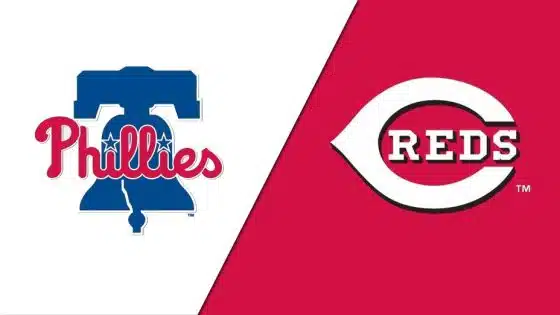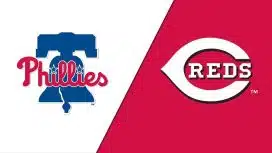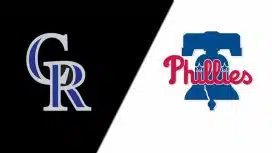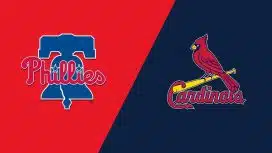By Matt Albertson, Historical Columnist
In our first excerpt from Ed Bolden and Black Baseball in Philadelphia, we learned that Ed Bolden was a dynamic leader who helped bring the Hilldale club to prominence and was fundamental in the founding of a second major negro league, the Eastern Colored League (ECL). But Bolden was not without his critics or challenges. In what follows, Dr. Courtney Smith examines when and where this unrest began and how Bolden navigated a difficult period in his baseball life.
Everyone’s A Critic
Prior to the 1925 season, the criticism Bolden faced typically came from people outside of the ECL, particularly Foster and his emissaries in the Chicago Tribune. Starting in the 1925 season, however, Bolden started to face pronounced criticism from people associated with the league he founded. In June, Oscar Charleston, player-manager of the Harrisburg Giants, wrote a letter in which he decried the ECL as a farce. While Charleston never specifically referred to Bolden in his letter, he did refer to unnamed men who are “hoodwink[ing] and fool[ing fans] out of hard earned cash.”[i] He bemoaned the lack of clarity in determining which games count toward the ECL’s standings and which ones count as exhibitions. Charleston also referred to incidents marring two recent games between Harrisburg and Hilldale. In one game held in Darby, Charleston claimed that the supposedly unbiased umpires consistently made calls favoring Hilldale. On the following day, the teams met in Lancaster, and the umpires called the game after three innings due to rain. The umpires’ decision rankled Charleston because it came after a mere fifteen minutes of rain and because Harrisburg had a four-run lead. ECL rules, as Charleston pointed out, gave umpires the option of calling a game after thirty minutes of rain, not fifteen. Several other factors angered Charleston. First, the rain had stopped, and the grounds’ crew had started to prepare the field for the resumed game. Additionally, Hilldale and Harrisburg stood in contention for first place in the ECL, and the umpires emerged from Hilldale’s dugout when they called the game. Charleston, therefore, concluded that the umpires called the game in order to protect Hilldale’s position in the league’s standings. He also concluded that the decision came at the expense of his team and that similar actions would ultimately undermine the ECL.[ii]
Bolden delivered a sharp rebuke of Charleston’s claims in a letter published in the Tribune. Without admitting to Charleston’s claims of biased umpires, Bolden reiterated his commitment to building a strong system of umpires in the ECL. He then referred to a letter from an unnamed umpire who refused to work any games at Harrisburg due to threats he had received from the players. Bolden also disputed Charleston’s claims of biased umpires at the recent game in Darby, noting that the umpires made several calls favoring Harrisburg. To counter Charleston’s claims of more biased umpires at the game in Lancaster, Bolden provided a different version of events. He asserted that the rain delay lasted for longer than thirty minutes and that the rain had left the field unusable. The umpires had to call the game, and the ECL’s rules supported their decision.[iii]
In the same edition of the Tribune, editor J.M. Howe both defended Bolden and acknowledged the veracity of some of Charleston’s grievances. Howe admitted that poor calls marred the game played at Darby, but he flatly denied that the ECL’s umpires deliberately made bad calls to favor one team. He also concurred with Charleston on the lack of clarity in regards to games that count toward the ECL’s standings as opposed to games that count as exhibitions. Howe highlighted a problem Bolden referred to in his response to Charleston, the problem of umpire baiting. Finally, Howe sounded an alarm about the dangers of too much criticism directed at the ECL. He expressed faith in the ECL’s leaders to fix the league’s problems provided that they work together to achieve common goals. Howe’s final sentence nicely summarized his viewpoint: “Let the league live, but make it live RIGHT.”[iv]
Shortly after that controversy flared, Bolden found himself immersed in more criticism stemming from the failure of the Wilmington Potomacs franchise and questions about the legitimacy of Hilldale’s record. George Robinson, the Potomacs’ owners, announced the club’s dissolution in July; his team’s players went to other clubs. At the same time, the ECL published league standings that showed Hilldale in front of the second-place Harrisburg Giants. William Nunn in the Pittsburgh Courier suggested that Bolden, who oversaw the publication of the standings, manipulated the standings in order to put Hilldale in first place. Echoing Charleston’s and Howe’s criticism, Nunn called for a publication of all games officially counting as games toward the ECL’s standings. He also wondered if the ECL’s team managers knew ahead of time whether or not a game counted as official league games.[v]
Not surprisingly, Bolden went on the offensive against the Pittsburgh Courier. He accused the newspaper of spreading lies and propaganda against Hilldale and the rest of the ECL. He also accused the newspaper of colluding with Charleston and not reporting on instances when Charleston himself and his players fought umpires and players from opposing teams. In response to Nunn’s suggestion that he had engaged in underhanded tactics to boost Hilldale, Bolden accused Robinson of engaging in underhanded tactics to boost the rosters of three of Hilldale’s competitors. Those competitors included Charleston’s Harrisburg Giants. The Courier flatly denied Bolden’s charges and republished the ECL standings that prompted Nunn’s column. Those standings clearly showed that Hilldale played and won three league games in the span of one week. According to those same standings, Harrisburg played seven league games and lost five of those games. As Nunn did in his column, the newspaper demanded Bolden release a list of official ECL games. The newspaper also demanded that Bolden assert better leadership in regards to the ECL’s umpires and to the on-field assaults he mentioned.[vi]
On the heels of that heated exchange, Bolden faced more criticism from Robinson, the former owner of the dissolved Wilmington Potomacs. Robinson’s criticism came in the form of a lengthy letter in which he defended his actions, took offense at Bolden’s claims against him, and openly questioned Bolden’s leadership. He framed his criticism of Bolden by recalling the banquet he organized for Hilldale following the 1924 season and other ways he had shown support for Bolden and the ECL. Robinson then recounted events that led to Bolden’s hiring of William Dallas to serve as the umpires’ supervisor. According to Robinson, Bolden selected Dallas because the two enjoyed a friendship. Robinson further claimed that Bolden and Nat Strong, who exercised control over the ECL schedule, crafted a schedule that advantaged Hilldale and other ECL teams at the Potomacs’ expense. The Potomacs never played games Bolden promised them and lacked access to one of the ballparks under Strong’s control. To refute Bolden’s claims he acted underhandedly in dispersing his players, Robinson provided details about the deals he made with other clubs. He recalled a conversation he had with Bolden about one of his pitchers. Robinson claimed he rejected the deal because he felt Bolden made an unsatisfactory offer. In his conclusion, Robinson made a dramatic statement: “I want to make it known that in my estimation the Eastern Colored League is the poorest operated business proposition I have ever known!”[vii]
The criticism Bolden endured frayed his control over the ECL’s affairs. In one of his regular columns in November 1925, Wilson issued a call for Bolden to resign his position and for the ECL to choose someone not affiliated with any of the teams as his replacement. Wilson reasoned that such an unaffiliated chairman would better address the ECL’s problems related to umpires and scheduling. At the start of the 1926 season, James Keenan of the Lincoln Giants refuted rumors that the ECL owners had decided to replace Bolden as the league’s commissioner. As the season progressed, however, the ECL faced mounting problems related to the umpires and uneven schedules. In July, the ECL once again contracted to seven teams when a new franchise, the Newark Stars, failed to survive its inaugural season. Shortly after the Stars folded, six of the remaining seven ECL owners met to discuss problems with uneven schedules, access to ballparks, and the possibility of continuing with only six teams. Tellingly, Nat Strong did not attend the meeting, and the other owners did not count his Brooklyn Royal Giants as one of the six teams staying in the ECL.[viii]
All of the criticism, combined with the internal ECL problems, presaged Bolden’s removal as the league’s chairman in January 1927. In a letter released to the press in August 1926, Bolden reiterated his devotion to enforcing player discipline, maintaining balanced schedules, and the betterment of the game of baseball. He also tried to make the argument that he alone should not face the sole blame for all of the ECL’s problems. As he noted, “the Eastern Colored League is ruled by a majority vote of the Commission and it is unkind to hold me personally responsible for the action of the league.”[ix] Bolden’s letter ultimately proved futile. The ECL’s 1927 season started with James Keenan leaving the league and then returning in time for the annual meeting with NNL owners. At that meeting, the ECL owners Isaac Nutter, an attorney from Atlantic City, as the new league president. As the president, Nutter enjoyed authority over Bolden, who served as the league’s secretary-treasurer. By creating a new position and electing an outsider to that position, the ECL demonstrated a readiness to move ahead without the league’s founder at the helm. For Bolden, his departure from the league’s leadership marked the start of a troubling period for him, a period marked by professional and personal tribulations.[x]
Down But Not Out
As Bolden faced rising dissension and instability, Foster suffered a similar fate in the Midwest. The NNL suffered from franchise instability, uneven schedules, and financial shortcomings. Prior to the 1925 season, Foster dramatically offered his resignation, but the other owners rejected his offer and reaffirmed his leadership of the NNL. Foster, however, adopted a hard line with his owners and vowed to no longer advance them money to help their team’s finances. He also adopted a hard line with his own team by releasing many of his veterans and rebuilding the Chicago American Giants’ roster. Later in that same season, a gas leak at Foster’s boarding house in Indianapolis nearly killed him. Players found Foster unconscious and slumped against a gas heater; he had a burn on his left arm from the lit heater. An ambulance rushed Foster to a local hospital, and someone from the Chicago American Giants contacted Foster’s wife to urge her to join her husband in the hospital. Foster regained consciousness later the same afternoon, and he soon returned to his home in Chicago.[xi]
Foster’s personal difficulties persisted into 1926. In the middle of the season, Foster appeared to take an absence from leading the NNL, and the owners discussed the possibility of electing a temporary replacement. Foster’s absence later became permanent when he suffered a mental breakdown. According to one of the stories, Foster had exhibited mentally unbalanced behavior for several weeks and had a physical altercation with a police officer. The same story also claimed that Foster had terrorized the other occupants of his home. Other stories related to this situation had Foster looking for fly balls in Chicago’s streets, hitting someone with his car, locking himself in his office bathroom. Police arrested Foster in his home, and Foster then underwent psychiatric care in a Chicago hospital. Foster never recovered, and he died in 1930 while still under psychiatric care. In his absence, the Chicago American Giants returned to the World Series, and the other NNL owners elected Dr. G.B. Key of St. Louis as the new president. The NNL, however, faced continued financial difficulties, and the league sorely lacked the kind of leadership Foster had demonstrated earlier in the decade.[xii]
While Foster’s world crumbled, Bolden inched closer to his own breakdown. In a bad yet appropriate omen for the 1927 season, rain washed out Hilldale’s home opener against Harrisburg. Hilldale ended the season with eighty-four victories, but it amassed a losing record against ECL teams in the first half of the season. In June, Bolden issued indefinite suspensions for George Carr, Nip Winters, and Namon Washington due to their lack of discipline and indifferent playing. All three players had failed to appear for recent games in New York. The suspensions only lasted for a few weeks, but the return of the three players failed to end Bolden’s troubles. White semi-pro baseball had declined in the Philadelphia area, leaving Hilldale with fewer lucrative dates on its non-ECL schedule. Bolden and other owners tried to fill the void by scheduling more black independent teams, but those games failed to produce enough revenue. The growth of black independent teams, like the Homestead Grays, posed a threat to Bolden and other ECL owners since those teams could entice players to jump their contracts. The ECL passed, laws mandating tough punishments for contract jumpers. ECL president Nutter, however, neglected to enforce those punishments, thereby opening the door to continued contract jumping. On top of those setbacks, ECL teams continued to play unbalanced schedules, a financial scandal rocked the Baltimore Black Sox, and the Lincoln Giants withdrew from the league.[xiii]
The seemingly continuous difficulties plaguing both Hilldale and the ECL temporarily forced Bolden out of black professional baseball. In September, Bolden suffered a nervous breakdown as he prepared to serve as one of the commissioners for the upcoming World Series. Bolden spent time in a hospital receiving treatment, and he appeared to make a quick recovery. About a month after his breakdown, Wilson reported seeing Bolden at a football game and having a discussion with him about his plans for the upcoming season. Wilson made a prudent prediction—Bolden would return to Hilldale with a fighting attitude. The other members of the Hilldale corporation, however, seemed less assured of Bolden’s imminent return. They chose Charlie Freeman, a former Hilldale player and vice president of the corporation, as the new leader. Freeman then went to work making decisions, such as hiring former Hilldale star Bill Francis as the field manager, for the upcoming season. A brief item in another one of Wilson’s columns provided some insight into the Hilldale corporation’s actions. According to Wilson, Bolden’s physicians advised him to stay away from baseball and to avoid the stresses associated with running a team. Without a definitive plan for Bolden’s return, the other members of Hilldale’s corporation had to move on without their longtime leader.[xiv]
As Wilson predicted, Bolden returned to work in early 1928 with an aggressive attitude. In his first public statements since his breakdown, Bolden reflected on what he saw as the shortcomings of organized baseball, specifically of the ECL. He refrained from criticizing his own leadership, instead blaming the narrow-mindedness and selfishness of the other commissioners for the ECL’s weaknesses. Bolden then made moves to reclaim control over Hilldale. At a meeting in March, Charlie Freeman, James Byrd, and Lloyd Thompson tendered their resignations. They had held the positions of president, treasurer, and secretary within the corporation. Their replacements included Bolden as the president, George Mayo as vice president, Mark Studeven as treasurer, and Thomas Jenkin as secretary. Bolden took an additional step to emphasize his resumption of control over Hilldale. In one of his first acts upon resuming Hilldale’s presidency, Bolden named Mayo, the corporation’s vice president and a former player, as the field manager. Mayo replaced the recently hired Bill Francis, the man whom the deposed Freeman had selected for Hilldale’s field manager for the 1928 season.[xv]
Bolden made similar moves against the already-fragile ECL. After regaining control of Hilldale, Bolden withdrew his team from the league he founded and announced that the team would operate as an independent franchise. Bolden’s move dealt a near-death blow to the ECL since the league also lost Strong’s Brooklyn Royal Giants and the Harrisburg Giants. His move also garnered a fiery response from ECL president Nutter, who effectively declared war on Bolden and Hilldale by accepting the application for a new Philadelphia-based franchise. Nutter also denounced both Bolden and Strong and issued a defiant proclamation: “Both Hilldale and the Brooklyn Royal Giants will seek admittance to the league again after they see we intend to fight and that neither can make baseball a paying proposition without the League.”[xvi]
In explaining his decision to withdraw Hilldale from the ECL, Bolden cited lack of cooperation, uneven schedules, lack of ballpark ownership, and financial concerns as key factors in his decision. Bolden explained to the Pittsburgh Courier’s Wilson that the ECL “has not been a money-maker” and that “[w]e are through losing money in an impossible league.”[xvii] He later elaborated on the financial problems forcing Hilldale out of the ECL by noting that the team had to borrow money in each of the previous three seasons and lost $21,500 in 1927.[xviii] In an open letter to the Tribune, Bolden sharpened his criticism of the other ECL owners who undermined his plan to use rotating umpires and who did not play all of their scheduled league games. He also cited Hilldale’s past success as an independent franchise and the recent financial losses it sustained as a member of the ECL. Although ECL president had rebuked Bolden, Bolden praised Nutter as a “thoroughly capable man” who remained “sincere in his efforts to build organized baseball.”[xix] Bolden did warn that “it would take a Hercules to [build an organized league], especially if handicapped by lack of parks, and co-operation.”[xx]
The ECL floundered for a few months before finally disbanding in June, thereby confirming Bolden’s comments about organized baseball. Bolden helped to speed the ECL’s demise by securing access to ballparks in the Philadelphia and thwarting the league’s attempts to establish a new franchise. Hilldale appeared to thrive without an organized league in the eastern states, finishing the season with one hundred nineteen victories. The lack of a league structure gave Bolden more flexibility in scheduling Hilldale’s opponents. Hilldale still faced local teams and its former rivals in the ECL. Games against two traveling clubs, the House of David team and a team of Japanese all-stars, filled Hilldale’s schedule. Bolden had no trouble adding top-notch players, including his one-time nemesis Oscar Charleston, to Hilldale’s roster. At the end of the season, Hilldale won a series over the Homestead Grays, a series the Tribune billed as an unofficial championship series for the state of Pennsylvania. Hilldale reversed its financial losses, yet the team failed to attract large crowds at many of its games. The on-going economic downturn for the Philadelphia area’s African Americans made baseball a luxury and left the future of teams like Hilldale in doubt.[xxi]
While Hilldale and other eastern teams competed without a league structure, discussions emerged about reestablishing an eastern league. Speaking for the Eastern Sports Writers Association, both the Tribune’s Dixon and the Pittsburgh Courier’s Wilson called for a new eastern league. According to them, eastern baseball needed an organized league because “the public will never again patronize ‘independent’ baseball as it did in the days before it knew the association brand of the game.”[xxii] They included Hilldale and most of the former ECL teams as the members of the proposed league. Both men pointed to Bolden as the only person who could establish and lead the new league. To support their choice, they briefly related Bolden’s success in leading Hilldale from a sandlot team into the “BIGGEST NEGRO CORPORATION IN SPORTS!”[xxiii] They also listed the great players in Hilldale’s history, Hilldale’s on-field success, and Bolden’s honorable intentions for organized black baseball. Bolden initially demurred on the idea of reestablishing a league, noting all of the financial and logistical problems that had undermined the ECL. One of his former players, Otto Briggs, expressed similar sentiments in an article published in December. By that time, however, Bolden had developed a firmer opinion about reestablishing an eastern league. He supported the formation of a new league, and he announced his support in the Tribune. Unbeknownst to Bolden, his involvement in the establishment of another eastern league marked the beginning of the end of his tenure with Hilldale, a tenure that would have a very ugly ending.[xxiv]
♦ ♦ ♦
[i] Oscar Charleston, “Oscar Charleston Terms Eastern League a Farce,” Philadelphia Tribune 20 June 1925.
[ii] Ibid.
[iii] Edward Bolden, “Bolden Answers Charleston,” Ibid. 27 June 1925.
[iv] J.M. Howe, “Sport Sidelights,” Ibid.
[v] “Wilmington Potomacs Throw Up the Sponge,” Pittsburgh Courier 25 July 1925; William G. Nunn, “Diamond Dope,” Ibid.
[vi] “Right Back At You, Mr. Bolden,” Ibid. 1 August 1925.
[vii] George W. Robinson, “George W. Robinson Throws Light on the Policies of the Eastern League,” Ibid. 8 August 1925.
[viii] Wilson, “Eastern Snapshots,” Ibid., 21 November 1925; “Newark Stars Quit Eastern League, Players Disbanded,” Ibid. 10 July 1926; “Keenan Gives Big Lie to Rumors About Bolden,” Chicago Defender 6 March 1926; “Baseball Magnates of East and West Hold Harmonious Session at Local Y.M.C.A.,” Philadelphia Tribune 16 January 1926; “League Heads Thresh Out Differences, Eastern League Moguls to Alleviate Ills of Base Ball Circuit That Was Ailing,” Ibid. 7 August 1926.
[ix] Edward Bolden in Howe, “Sport Sidelights,” Ibid. 14 August 1926.
[x] Lloyd Thompson, “Keenan Goes West with Rest of League Moguls; May Have Changed His Mind,” Ibid. 15 January 1927; Wilson, “Eastern League Elects Nutter Pres. to Succeed Bolden,” Pittsburgh Courier 22 January 1927.
[xi] “Detroit Will Have Baseball in 1925; Rube Foster Still Head of the Westerners,” Chicago Defender 3 January 1925; “Foster Releases Several Ball Players,” Ibid. 7 March 1925; “Cuban Stars Remain But Elites Quit,” Ibid. 31 July 1926; “Gas Nearly Kills Andrew Rube Foster,” Ibid. 6 June 1925; “Foster Releases Practically Entire Team,” Pittsburgh Courier 7 March 1925; “Foster Has Narrow Escape from Death in Indianapolis,” Ibid. 6 June 1925.
[xii] “N.N. League Moguls in Meeting,” Pittsburgh Courier 26 June 1926 ; “Affairs in N.N. League Muddled,” Ibid. 24 July 1926; “’Rube’ Foster Insane; In Chicago Hospital,” Ibid., 4 September 1926; “St. Louis Man Elected President N.N. League,” Ibid. 11 September 1926; Wilson, “Eastern Snapshots,” Ibid. 20 November 1926; Posey, “The Sportive Realm,” Ibid. 27 November 1926; Frank A. Young, “Directors of National League Hold Future of Our Baseball in Their Hands,” Chicago Defender 11 September 1926.
[xiii] “Rain Wrecks Opening Day for Hilldale,” Philadelphia Tribune 7 May 1927; Howe, “Sport Sidelights,” Ibid. 19 May 1927; “’Nip’ Winters George Carr and Washington Suspended Indefinitely by Bolden,” Ibid. 9 June 1927; “Daisies Lose Thursday, Win Saturday To Senators,” Ibid. 19 June 1927; Howe, “Sport Sidelights,” Ibid.; Howe, “Sport Sidelights,” Ibid. 14 July 1927; Lanctot, 143-157.
[xiv] “Ed Bolden, Hilldale Mentor, Suffers Nervous Breakdown,” Philadelphia Tribune 29 September 1927; “Bill Francis Signs as Manager of Hilldale for 1928,” Ibid. 15 December 1927; “Charlie Freeman Succeeds Bolden as Hilldale Head,” Chicago Defender 26 November 1927; “Bill Francis Will Manage Daisies,” Ibid. 17 December 1927; “Ed Bolden Suffers Nervous Breakdown,” Pittsburgh Courier 1 October 1927; Wilson, “Sport Shots,” Ibid. 29 October 1927; “Bolden ‘Let Out’ As Head of Hilldale Baseball Club,” Ibid. 10 December 1927; Wilson, “Sport Shots,” Ibid.
[xv] Edward Bolden, “Bolden Back in Perfect Health, Proffers Views,” Philadelphia Tribune 2 February 1928; Randy Dixon, “Hilldale and Giants Quit Eastern Loop,” Ibid. 15 March 1928; “Freeman Out as Hilldale Quits Eastern League,” Chicago Defender 17 March 1928.
[xvi] Quoted in “Nutter Backed by Magnates Defies Bolden,” Philadelphia Tribune 15 March 1928.
[xvii] Quoted in Wilson, “Hilldale Withdraws from League,” Pittsburgh Courier 17 March 1928.
[xviii] “Ed Bolden Explains Hilldale’s Position,” Ibid. 31 March 1928.
[xix] Edward Bolden, “Bolden Tells Why Hilldale Quit Circuit,” Philadelphia Tribune 29 March 1928.
[xx] Ibid.
[xxi] “Eastern League, Punctured Already, Gets Flat Tire,” Chicago Defender 21 April 1928; Wilson, “Eastern League Will Continue,” Ibid. 28 April 1928; “Eastern League Bubble Bursts as Moguls Disagree,” Ibid. 5 May 1928; “Eastern League Disbands,” Pittsburgh Courier 21 April 1928; “Jap Champs to Play Hilldale,” Ibid. 12 May 1928; “Eastern League Disbands; Fate Long Predicted,” Philadelphia Tribune 18 April 1928; Randy Dixon, “Sport Sidelights,” Ibid.; “Veteran Outfielder and Star Pitcher Will Play for Daisies; Report Soon,” Ibid. 29 March 1928; “Hilldale Club Battles House of David Sat.,” Ibid. 28 June 1928; “Bolden’s Pets Wreck House of David; Divide with the Bacharachs at the Seashore,” Ibid. 5 July 1928; “12,000 Watch Hilldale and Rivals Split,” Ibid. 19 July 1928; “Fandom Eagerly Awaits Initial Fray of Series to Determine Supremacy,” Ibid. 13 September 1928; Dixon, “Sport Sidelights,” Ibid. 20 September 1928; Lanctot.
[xxii] Dixon, “Need of Baseball in East Apparent; Bolden the Logical Reorganizer,” Philadelphia Tribune 9 August 1928; Wilson, “Baseball League in East Vital to Future Welfare of All Clubs,” Pittsburgh Courier 18 August 1928.
[xxiii] Ibid.
[xxiv] Ibid.; Wilson, “Sport Shots,” Pittsburgh Courier 24 November 1928; Otto Briggs, “New League is Unlikely Says Baseball Star,” Philadelphia Tribune 13 December 1928; Bolden, “Hilldale Directors Recommend League,” Ibid.; Briggs, “Fan Proposes a Mixed League,” Ibid. 20 December 1928; Lanctot, 190-191.





